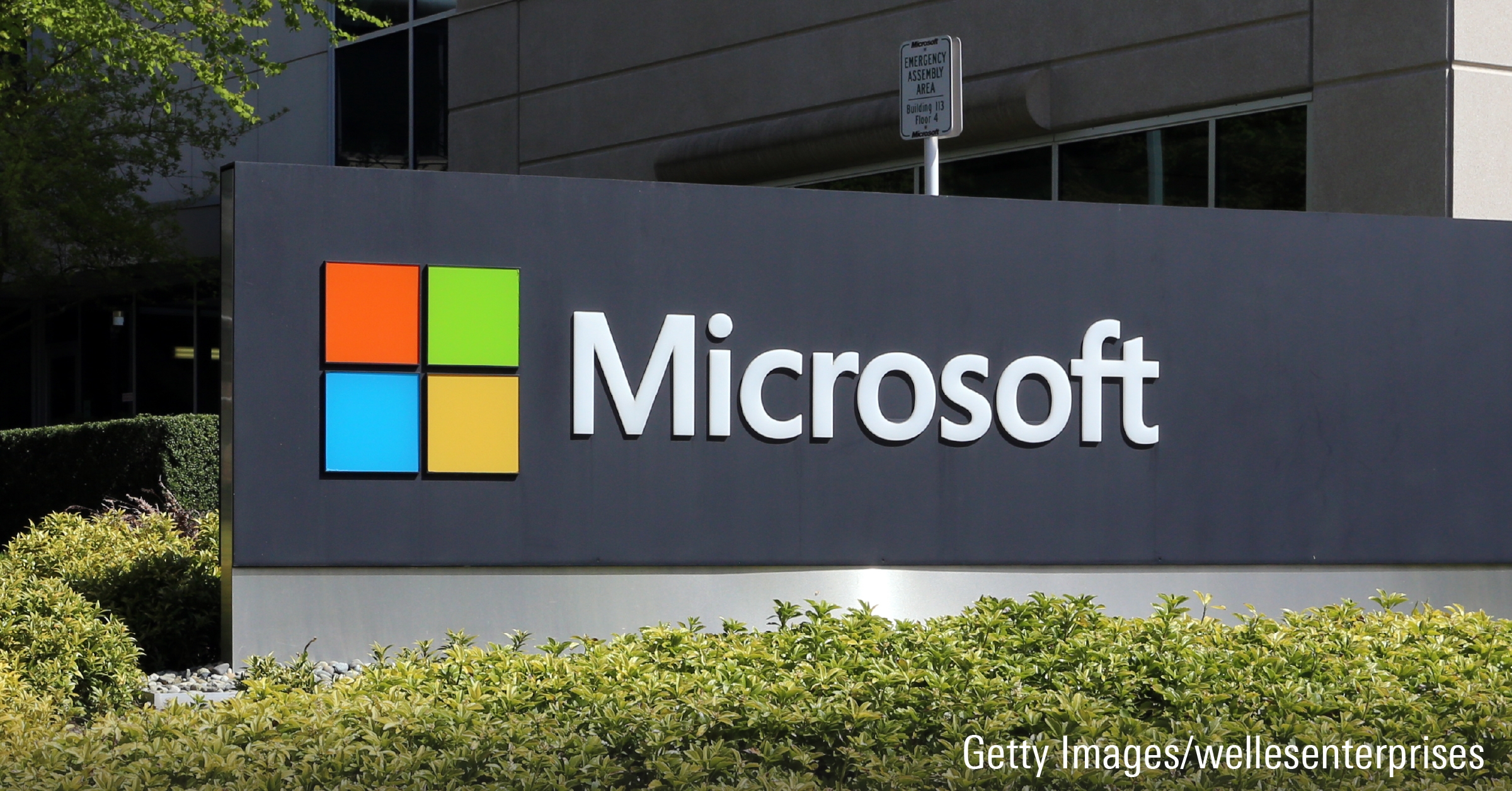James Gard: So, we've just got a new report out called Market Strategy Monthly. The report's author is with me now, he's Michael Field. So, thanks for joining me today. Just to pick out one of the key themes from the report is defense stocks. Obviously, since your last report, there's been war in the Middle East. You have mentioned defense stocks in terms of investor interest and you think there's a big growth runway now for these stocks.
Michael Field: Completely right, James. Yeah, there's been a lot happening globally. So, the Ukraine war has been going on quite a while now. You've had the situation between Armenia and Azerbaijan kick off again recently. And then to top that off, obviously, what we've been seeing in the headlines for the last month, the situation in Israel. So, I think while that in itself kind of spurs investor interest in defense stocks, it kind of highlights this bigger structural picture, right? Which is that most NATO members and most European countries have been under spending on defence for quite so many years now. And what the conflicts recently have done is kind of highlight the danger of this and the needs to kind of spend going forward. So, our defense analysts are pointing to a large uplift in spending on defense over the next five years, which is kind of a huge structural tailwind for companies like Thales, the French defense manufacturer.
Gard: Sure. I mean, companies like BAE obviously had very, very rich valuations last year. I mean, there's a sense that there could be another leg higher. I mean, that didn't seem likely at the end of last year, but you're saying that we could see another jump up in terms of pricing.
Field: It seems that way. When you've got a structural tailwind like this, it really does drag the shares up. I would kind of caveat, that's not to say that every single defense company is going to rise as a result of this. You have to look for specific defense companies that have strong exposure to Europe, for example. You know, U.S. has been spending on defense where they should be for quite a while. So, I think that is where it is. It's going to grow, but in Europe, you've got a bit more of kind of headroom in that regard. And also spending in the right areas, certain levels of spending, aerospace and things like this kind of are where they are. But the weapons and munitions needed for the Ukraine war, if that continues on, there's a lot of companies that kind of provide those specific measures that the countries are looking for currently. So, they're probably the more interesting players on the space.
Gard: Sure. Thanks. So, in contrast, you mentioned in your report, you think banks may have peaked in terms of their profitability. I know a lot of the U.K. banks in terms of net interest margins were disappointing to investors. So, do you think that that is the peak of the cycle we've seen the best from European banks?
Field: In profitability terms, the answer is probably yes. You know, our banks analyst has been through kind of a hell of a year. So, you had, you know, the banks crisis was only what, eight months ago at this point, it feels like a lot longer given all we've been through. And at the time, he and the other banks analysts were kind of shouting that, banks aren't that bad, banks are pretty safe, you know, the structural conditions are in place such that they're going to survive this kind of onslaught and then become more profitable over the course of the year, and that's happened. But investor sentiments work the other way. Investors were very kind of negative on banks, obviously, in March at the outset of the crisis. But as the year progressed, they kind of got more drawn into the story. And now we're kind of pumping the brakes a little bit in terms of the outlook and saying to investors, look, net interest margin has increased quite rapidly. But the negative conditions are coming to play now as well, mortgage interest rates are very high at the moment, that should kind of curb borrowing to some degree and insolvencies and default and things like this will probably be picking up over the next six months as those high rates kind of impact people's ability to actually repay those loans. So we're kind of airing a note of caution at this point on the banks, I would say.
Gard: Sure. I mean, in terms of the we've had two central bank meetings since your last report, and the message seems to be it's too early to be talking about rate cuts, and rates will stay higher for longer. I mean, surely these are good conditions for banks to prosper.
Field: It's true. And I think, to a large degree, investors haven't been listening to exactly what the Fed and the Bank of England are saying, they're still kind of noting caution, like you just mentioned, that interest rates might be higher for longer, whereas investors are kind of hearing what they want to hear that, oh, you know, there'll be cuts next year, what have you. So I think that certainly is supportive of banks, of course. But as I mentioned, it's those other parts of it, you know, the reduced mortgage lending, reduced loan lending to customers and businesses, generally speaking, given the economic environment, and then the insolvencies, as I mentioned as well, like that are going to be detracting. So that's not to say that banks won't be profitable, but it just means the profitability that we've seen perhaps in the last quarter could be the kind of peak.
Gard: Sure. I certainly think investors have a peculiar relationship with U.K. banks in particular, they've bought them and the idea that they're cheap and unloved, and they've remained so. And any sort of indication in the reports, like higher bad loans or whatever, that's immediately punished as a kind of recession warning. And certainly the Bank of England was very gloomy last week in terms of next year's growth. So there isn't the idea that as soon as we get this year out of the way, things will start improving. They're certainly saying 2025, 2026 is where [we expect growth]. So I guess that is the short term with some bank investors as well in play.
Field: To some degree, yeah. And I think in other ways, investors are a clever bunch also, right? Like banks are highly levered investments on the economy. If you look at their deposits and how much they have to lever up on top of that to actually make a profit, it's very dependent on positive economic activity around it. So I think investors are rightly cautious. But where we would say that they're not fully grasping it is in the differences between banks and the differences in health and loan books and things like this between individual banks. And that's where we think that kind of stock picking now is particularly important.
Gard: Sure. Thanks. So to another sector where investors have been particularly gloomy, we're talking about house builders and you'll notice a big jump up in Persimmon share price this week. And we've got the feeling that, investors are pricing in all the terrible news for housing sector. I know Morningstar thinks that a lot of these house building stocks are materially undervalued. What explains that jump? It was only a trading update. And really, it was a poor update in that it said, you know, completions have been lower than expected. But there was sort of a slight beating of previous targets, which immediately spurred a jump in the share price. Is this something we should expect going forward with house builders?
Field: No, it's very hard to tell, right? They're at the kind of the vanguard of what happens to the economy. And you mentioned Persimmon in particular. Yeah, the update wasn't great. It read pretty poorly, right? The outlook's not great for next year. And they're slightly down on completions for this year. So you would take that as a negative. But again, it's like you said, how much is priced in. Now Persimmon shares have fallen by two-thirds over the last few years from their peak, right?
So they're really trading at the bottom. I was at the Morningstar Investment Conference U.K. a few months back, and there was an external speaker. And he put up a slide showing that in a normal recessionary environment, how banks and home builders, those kind of extremely focused on the cycle sectors, how they exhibit the behavior and how they change. And what you see is that they take the brunt of the hit very early on. And then as it looks like the economy could be getting better, they recover quite quickly. So I think what we're seeing with those home builders in particular, is that they've taken a huge hit. And the difference is, investors are looking at this thinking, right, well, it could be three or four years before, the economy recovers from a whole building perspective. But, investors don't need to wait three or four years, all we need to do is see the signs of recovery for you to actually make money in those shares. And that's the kind of difference.
Gard: Yeah, I mean, it certainly seems that investors are trying to time the pivot in recovery. And there was a sense earlier in the year that house builders have been beaten up too much. But timing that sort of exit velocity from the bad news is very hard. And perhaps one left to the professionals. So if I might stick on a theme of share price moves, I mean, it seems to be this earnings season has shown a lot of volatility in share prices, seen really big moves. I know, Adyen jumped this morning, Ørsted collapsed, Telefonica Deutschland was up 35%. Is it my imagination? Or has this earnings season produced more than the average in terms of share price reaction?
Field: I think that's probably fair, especially with some kind of stocks like Telefonica Deutschland, which don't usually see such large share price moves that the the earnings results are relatively kind of benign, right, and expected to a large degree, which is part of the attraction with some of those telecom shares. I would say this quarter's earnings season has been of particular interest to investors, given the kind of unstable economic environment we're in. Then if you look over the last few years, we've had periods of relative stability and we knew what to expect from companies and from central banks as well. Whereas this earnings season investors are really looking for a guide as to how the economy is doing or how they should be thinking about the economy moving into 2024 and certain sectors as well. We've had kind of no visibility or no insight into like consumer, for instance, it's been hit earlier this year in certain instances, right?
Discretionary spend has gone down. We all know this, but in other areas like staples, for instance, you've seen those kind of take a hit later as the year went on. Heineken, for instance, Anheuser-Busch, beer manufacturers were reporting volumes being down, which is kind of unheard of to a large degree, right? That's usually a very stable kind of product demand for it is quite well known. So when companies like this are producing kind of surprises to some degree, then it's obvious that other companies that have even less kind of visibility into like telecoms, for instance, that they might produce even bigger surprises. So yeah, it's been an interesting one for sure.
Gard: Sure. I mean, it is certainly profitable for say short sellers and hedge funds, but it probably makes the average investor a bit nervous about even holding fairly predictable companies. What would your message be to investors, sort of don't panic if your share price falls 10%, 20% in one day?
Field: I think you always have to focus on the long term fundamentals, no sector's bulletproof. Even recently in Europe, we've seen sectors like utilities, pharma, for instance, sectors that are normally very, very stable. You've seen those share prices come down and valuations come down. So there's opportunities opening there. Obviously, in Morningstar, I'm going to plug the moat framework, we focus very much on kind of high quality companies with long term sustainable competitive advantages. And again, I'm not saying they're predictable either in the six months or we know exactly what they're going to do. But at the same time, over a longer period, we're fairly sure as to how they're going to perform. And that's kind of the stocks we back as a result.
Gard: Fair enough. Well, thanks for your insights today, Michael. And let's catch up next month for more insights in the earnings season. Q4 is going to be an interesting one. So look forward to discussing with you then.
For Morningstar, I'm James Gard.






















